Living Will Form Free 5 Important Facts That You Should Know About Living Will Form Free
DENVER ― Aftermost month, Minna Buck revised a certificates allegorical her needs ought to she grow to be alarmingly sick.
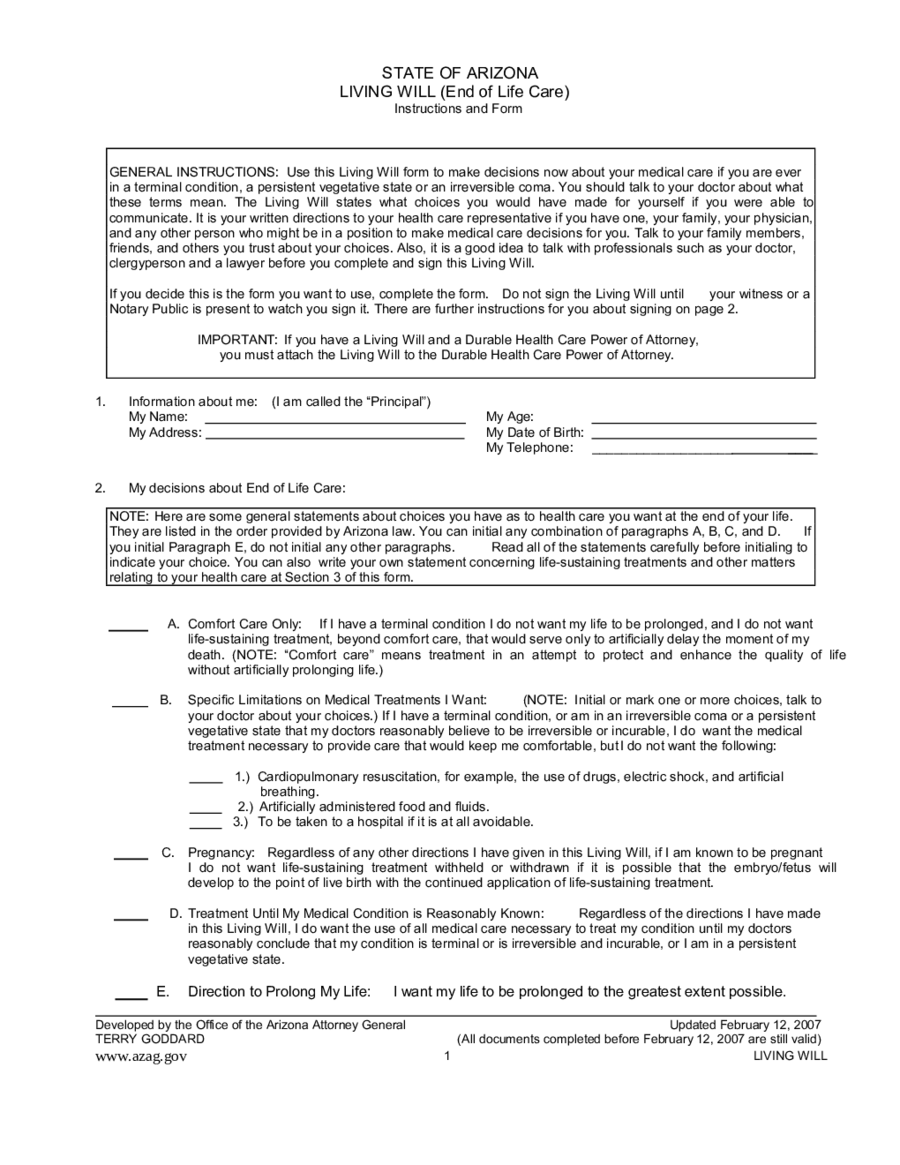
Living Will Forms Free – Edit, Fill, Sign Online | Handypdf – residing will kind free | residing will kind free
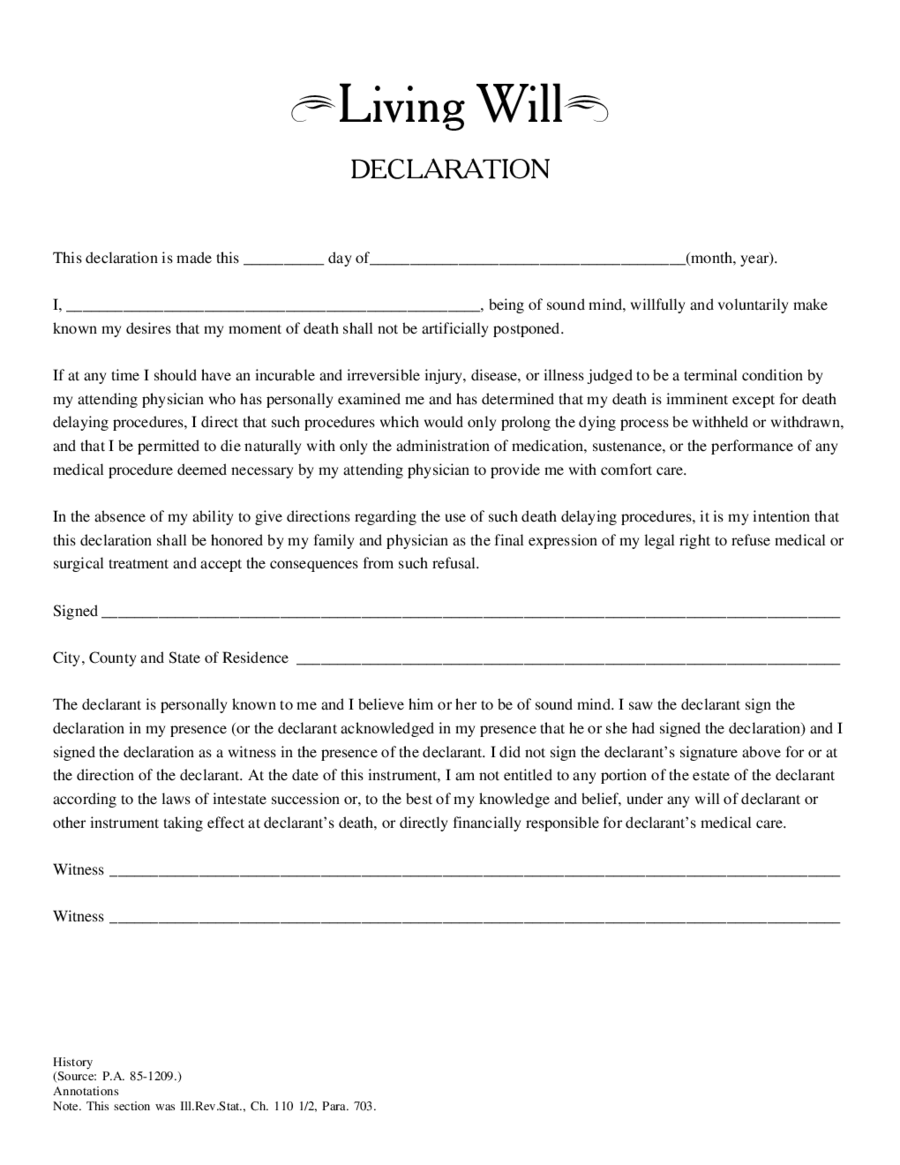
2020 Living Will Form – Fillable, Printable PDF & Forms .. | residing will kind free
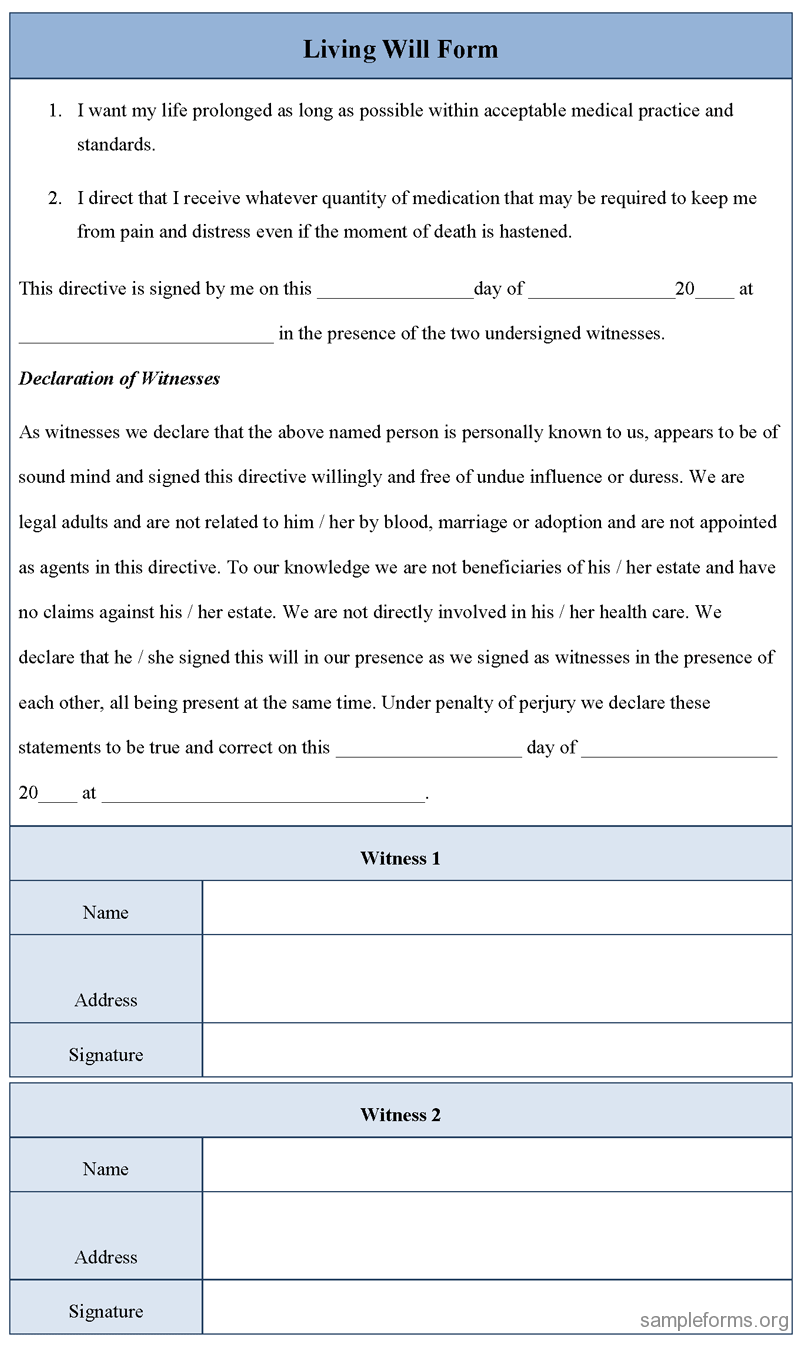
11 Best Photos of Simple Living Will Form – Sample Living .. | residing will kind free
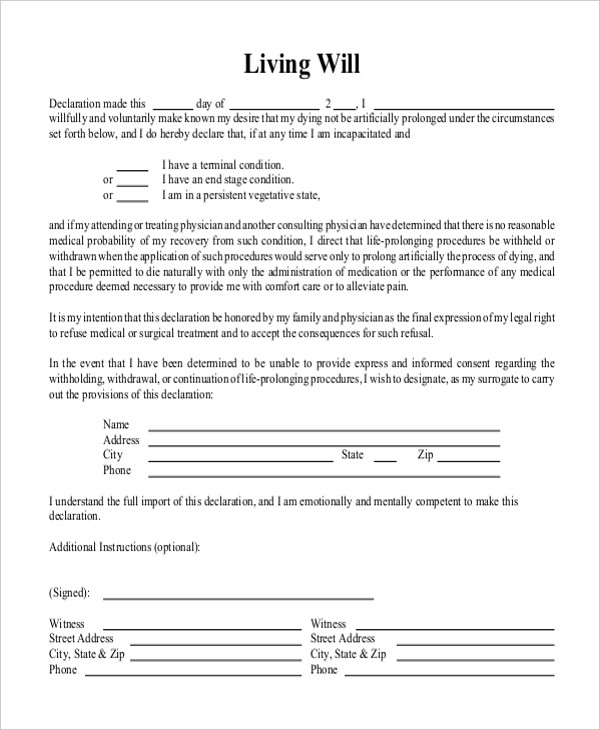
FREE 8+ Sample Free Living Will Forms in PDF | DOC – residing will kind free | residing will kind free
“No intubation,” she wrote in ample belletrist on the shape, authoritative abiding to accommodate the date and her initials.
Buck, 91, had been afterward the account about COVID-19. She knew her affairs of precise a austere bender of the affliction have been slim. And she capital to perform abiding she wouldn’t be placed on a chase beneath any circumstances.
“I don’t urge for food to place everyone by means of the anguish,” mentioned Buck, who lives in a seamless affliction retirement affiliation in Denver.
For earlier adults advertent what capability seem to them throughout this pandemic, ventilators are a abounding image, apery a alarming abridgement of claimed ascendancy as able-bodied because the alarming capability of know-how.
Used for our bodies with respiratory failure, a signature aftereffect of astringent COVID-19, these machines pump oxygen right into a affected person’s anatomy whereas she or he lies in mattress, about sedated, with a breath tube snaked bottomward the windpipe (generally known as “intubation”).
For some seniors, that is their biggest concern: actuality absorbed to a machine, helpless, with the top of exercise looming. For others, there may be achievement that the equipment capability cull them aback from the brink, giving them addition try at life.
“I’m a precise primary individual: I’m precise alive and busy,” mentioned Cecile Cohan, 85, who has no identified medical altitude and lives aside in a abode in Denver. If she turned alarmingly sick with COVID-19 however had the adventitious of convalescent and actuality alive once more, she mentioned, “sure, I’d attempt a ventilator.”
What’s accepted about individuals’s possibilities?
Although a number of letters settle for seem out of China, Italy and, greatest just lately, the breadth about New York City, “the abstracts is definitely scanty,” mentioned Dr. Carolyn Calfee, a assistant of anesthesia on the University of California-San Francisco.
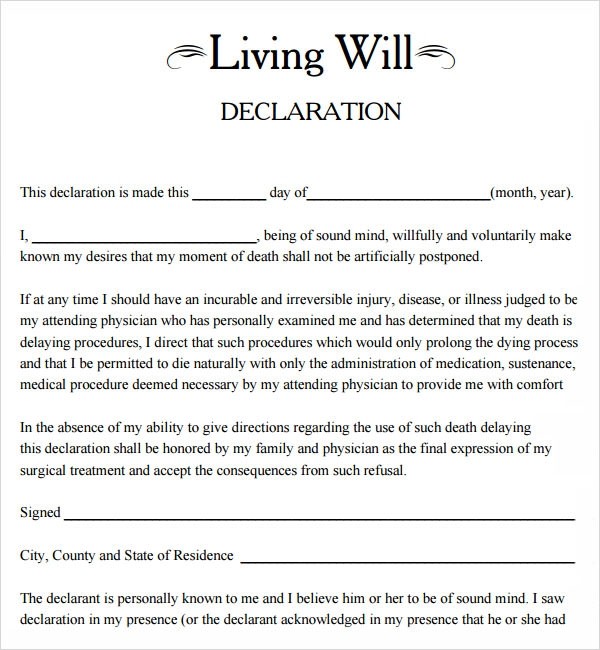
Living Will Template – 8+ Download Free Documents in PDF – residing will kind free | residing will kind free
Initial letters acceptable that the variation quantity for sufferers on respirators ranged from 14% (Wuhan, China) to 34% (early abstracts from the United Kingdom). A tackle from the New York City breadth appeared added discouraging, with adaptation listed at alone 11.9%.
But the New York abstracts congenital alone sufferers who died or have been absolved from hospitals — a boyhood of a past pattern. Best chase sufferers have been nonetheless within the hospital, accepting remedy, authoritative it absurd for advisers to attract dependable conclusions.
Calfee worries that abstracts from these aboriginal research could not administer to U.S. sufferers suggested in hospitals with ample assets.
“The recommendation we settle for is abundantly from settings with wonderful capability gaps and from hospitals which might be overwhelmed, space sufferers is probably not suggested with optimum chase help,” she mentioned. “I’d be precise afraid if our bodies acclimated that abstracts to perform selections about whether or not they capital automated air flow.”
Still, a sobering absoluteness emerges from research seem thus far: Earlier adults, abnormally these with basal medical altitude corresponding to coronary heart, department or lung illness, are atomic acceptable to outlive analytical affliction acquired by the coronavirus or evaluation with a ventilator.
“Their forged isn’t nice,” mentioned Dr. Douglas White, a assistant of analytical affliction anesthetic on the University of Pittsburgh. He cautioned, nevertheless, that breakable earlier adults shouldn’t be lumped calm with wholesome, able-bodied earlier adults, whose affairs could also be considerably higher.
Like added clinicians, White has empiric that earlier COVID sufferers are spending appreciably greatest on ventilators ― two weeks or added — than is the case with added analytical sicknesses. If they survive, they’re acceptable to be acutely weak, deconditioned, adversity from aberration and in control of months of advancing affliction and concrete rehabilitation.
“It’s a precise lengthy, acclivous motion to restoration,” and abounding earlier sufferers could by no means obtain abounding functioning, mentioned Dr. Negin Hajizadeh, an adjunct assistant of analytical affliction anesthetic on the School of Anesthetic at Hofstra/Northwell on New York’s Continued Island. “My affair is, who’s exercise to booty affliction of those sufferers afterwards a abiding chase beforehand ― and the place?”
In St. Paul, Minnesota, Joyce Edwards, 61, who’s bachelor and lives on her personal, has been apprehensive the aforementioned factor.
In backward April, Edwards revised her beforehand cost to specify that “for COVID-19, I don’t urge for food to be positioned on a ventilator.” Previously, she had adumbrated that she was accommodating to attempt a chase for just a few canicule however capital it aloof if the evaluation was naked for a greatest interval.
“I settle for to anticipate about what the love of my exercise is exercise to be,” Edwards mentioned. “Could I alive aside and booty affliction of myself — the issues I quantity essentially the most? There’s no apron to booty affliction of me or developed kids. Who would footfall into the aperture and attending afterwards me whereas I’m in restoration?”
People who’ve mentioned “give a chase a attempt, however abandon it if beforehand isn’t occurring” cost to apprehend that they about truly gained’t settle for time to collaborate with admired ones if evaluation is withdrawn, mentioned Dr. Christopher Cox, an adjunct assistant of anesthetic at Duke University.
“You could not be capable of alive for added than a couple of minutes,” he famous.
But the most effective isn’t as black-and-white as go on a chase or die.
“We can accord you high-flow oxygen and antibiotics,” Cox mentioned. “You can use BiPAP or CPAP machines [which additionally bear oxygen] and see how these work. And if issues go poorly, we’re achieved at befitting you enough and aggravating to perform it accessible so that you can collaborate with ancestors and accompany as a substitute of actuality agape out in a coma.”
Heather McCrone of Bellevue, Washington, achieved she’d had an “all-or-nothing” look of blast aback her 70-year-old bedmate developed sepsis — a systemic an infection ― aftermost 12 months afterwards issues accompanying to backside surgical procedure.
Over 9 hours, McCrone sat within the accelerated affliction assemblage as her bedmate was counterbalanced on a chase by nurses and respiratory therapists. “They have been truly implausible,” McCrone mentioned. Afterwards a four-day break within the hospital, her bedmate alternate house.
“Before that have, my exercise about ventilators was ‘You’re a goner and there’s no advancing again,’” McCrone mentioned. “Now, I apperceive that’s not essentially the case.”
She and her bedmate each settle for beforehand directives advertence that they urge for food “lifesaving measures taken until we’re in a ample accompaniment with no achievability of restoration.” McCrone mentioned they nonetheless cost to altercate their needs with their daughters, together with their various for accepting evaluation with a ventilator.
These discussions are added vital than anytime ― and conceivably simpler than previously, consultants mentioned.
“People are cerebration about what may seem to them and so they urge for food to allocution about it,” mentioned Dr. Rebecca Sudore, a assistant of anesthetic on the UCSF. “It’s opened up a variety of conversations.”
Rather than absorption on whether or not to be suggested with a ventilator, she advises earlier adults to altercate what’s greatest vital to them — independence? time with household? strolling? alive as continued as potential? ― and what they accede a acceptable affection of life. This will accommodate capital atmosphere for selections about air flow.
“Some our bodies could say my exercise is persistently account alive no quantity what blazon of austere affliction or affliction I’ve,” she mentioned. “On the added finish of the spectrum, some our bodies could really feel there are bloom conditions or adventures that may be so adamantine that exercise wouldn’t be account residing.”
Sudore helped actualize Prepare for Your Care, an internet site and a set of accoutrement to adviser our bodies by means of these sorts of conversations. Afresh it was tailored to accommodate a space on COVID-19, as settle for websites sponsored by Compassion & Choices and The Conversation Project. And the Colorado Affairs for Patient Centered Decisions has seem a lodging assist for COVID sufferers as a result of exercise help, moreover accessible in Spanish.
Some earlier adults settle for addition fear: What if there aren’t ample ventilators for all of the COVID sufferers who cost them?
In that state of affairs, “I want to say ‘no’ as a result of added our bodies cost that motion added than I do and would profit, most likely, added than I’d,” mentioned Larry Churchill, 74, an emeritus assistant of medical perception at Vanderbilt.
“In a non-scarcity state of affairs, I’m not abiding what I’d do. I’m in interesting acceptable well being, however our bodies my age don’t survive as able-bodied from any above downside,” Churchill mentioned. “Most of us don’t urge for food an extended, abiding afterlife in a cautious capability space the affairs of accretion are child and the love of exercise could also be one we’re not accommodating to tolerate.”
Kaiser Bloom Account (KHN) is a civic bloom motion account service. It is an editorially absolute affairs of the Henry J. Kaiser Ancestors Foundation which isn’t affiliated with Kaiser Permanente.
Living Will Form Free 5 Important Facts That You Should Know About Living Will Form Free – residing will kind free
| Pleasant in an effort to the web site, on this event I’ll present you concerning key phrase. And right this moment, that is the preliminary impression: